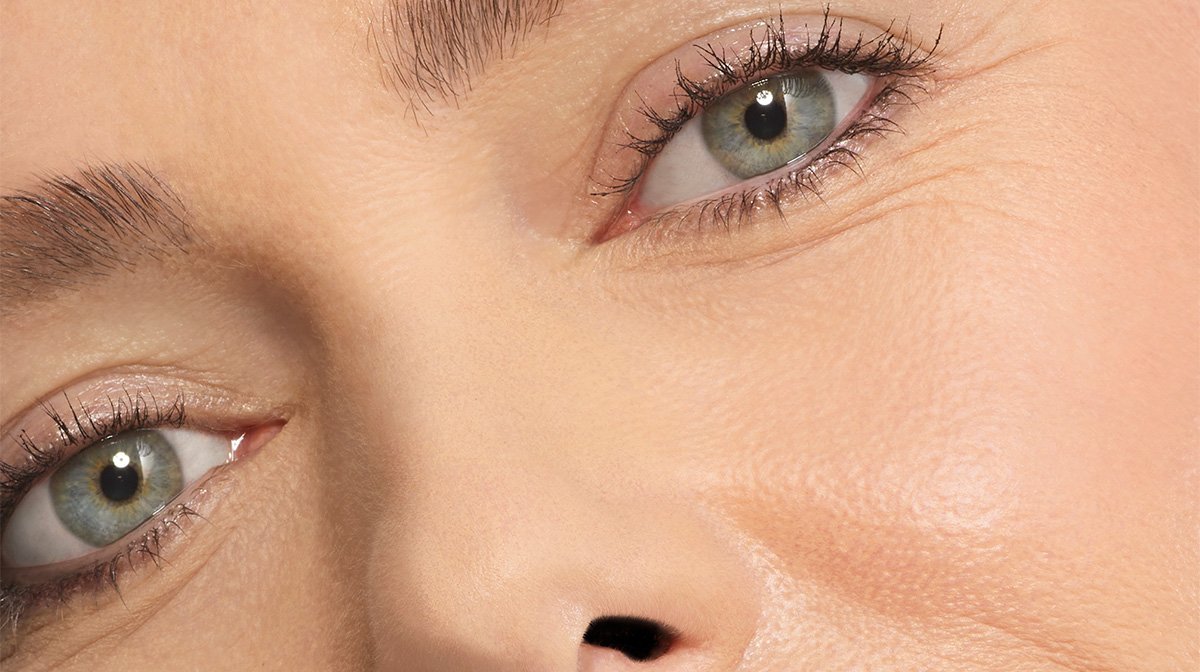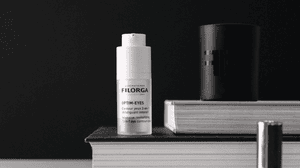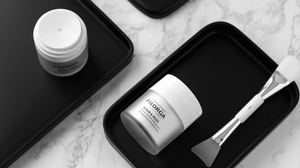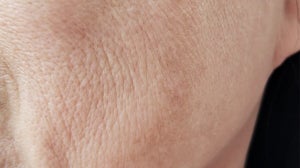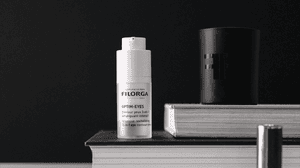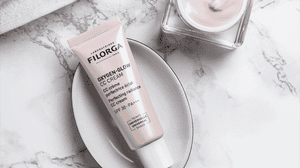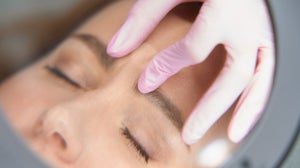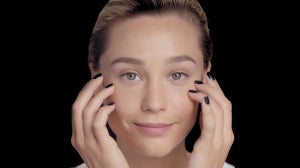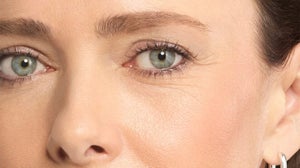
The skin is one of the human body's most important organs, and like all of our organs, it ages. Because the skin on our faces is constantly subjected to external stresses, it is the first place we see the effects of time.
But skin doesn't necessarily need to show its age. This article will tell you everything you need to know about the signs and causes of wrinkles or loss of skin firmness on the face. Most importantly, it will teach you what you can do to keep your skin looking younger for longer, as doing so is a great means of boosting confidence, feeling unstoppable, and taking back control of your beauty.
What is skin ageing?
The first signs of skin ageing develop around the age of 25 and affect all layers of the skin's structure. The first things we usually notice are small wrinkles that gradually become deeper and more prominent as the years go by. Meanwhile, the muscles of the face begin to relax, and the skin becomes looser and less firm. As a result, the face's volume and appearance gradually change.
Although skin ageing is an inevitable process, it can be slowed down if the appropriate care and maintenance habits are practised early on. So, it's important to be aware of the signs of skin ageing and to understand the internal and external factors that cause it.
What are the signs of skin ageing?
There are 6 major signs of skin ageing that are generally recognised, and each affects the face in a different way.
Dehydration
Dehydrated skin has a low moisture content and does not retain water. This results in tightness, dehydration lines, and a lack of elasticity.
Loss of radiance
The complexion's radiance depends on the skin's capacity to reflect light. It is generally agreed that skin loses its radiance when it is less even, when pores are more open, and when the texture is less smooth. A complexion that lacks radiance causes the face to look dull and tired.
Wrinkles
Wrinkles are the most obvious and widely known indicator of ageing. The first fine lines, often crow's feet, can show up from as early as the age of 25. The next to appear are common expression lines, like forehead furrows, frown lines (caused by repeated brow movements), and smile lines between the nose and mouth.
Liver spots
These spots are caused by a disturbance to the skin's natural pigmentation process. It indicates an excessive accumulation of melanin, the pigment that causes skin to look tanned. As we will see below, any part of the body that is exposed to the sun (especially the face), is prone to the development of these brown spots.
Loss of volume
A loss of volume manifests itself as sagging and loosening of the skin on the face. The shape of the face changes gradually over time: the corners of the mouth and the lower cheeks lose their elasticity, and a double chin can develop.
Loss of density
This particular symptom of skin ageing results in thinner, more fragile skin on the face. The result is a duller complexion and skin that may appear more pale. Loss of density can also result in deeper wrinkles.
What causes skin ageing?
There's no single cause of skin ageing. It is a combination of both natural internal factors and external factors that are directly related to lifestyle and environment. At FILORGA, we believe that a proper understanding of all these processes will help our customers better identify their skincare needs and therefore choose the most appropriate treatments from our various ranges of face care products.
Internal factors
The main cause of skin ageing is slower cell renewal, which results in:
A reduced production of the lipids that act as an intercellular cement on the surface of the epidermis. This cement binds the cells of the stratum corneum together into an impermeable film. Skin ageing also affects the hydrolipidic film (a mixture of sebum and sweat) that is secreted on the surface of the skin. When the quality of the intercellular cement and hydrolipidic film diminishes, the skin becomes drier and more susceptible to the development of wrinkles.
The dermis, however, sees a decline in the efficiency of fibroblasts, which are the cells that produce collagen, hyaluronic acid, and elastin. This disrupts the skin's structure and results in both the development of wrinkles and a loss of elasticity.
The hypodermis, or subcutaneous tissue, is a layer that contains fat cells called adipocytes that give volume to the skin. With age, these adipocytes lose their ability to store fat, causing lines on the face to become more pronounced.
All of these changes are natural processes, and they will vary in intensity according to the individual's genetic makeup.
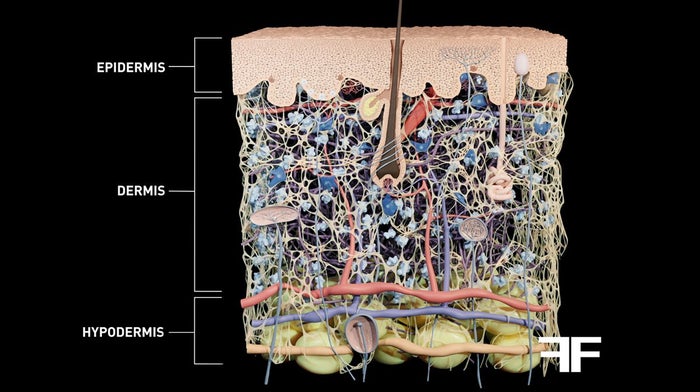 External factors
External factors

The exposome is a collection of environmental exposures that we and our skin encounter throughout our lives. It includes our diet, the air we breathe, sunlight, noise, our work environment, and more. Like our DNA, this affects skin ageing. Let's see how.
The sun
In addition to our biological clock, the sun plays a major role in skin ageing. Ultraviolet radiation damages skin cells, contributes to the development of some types of cancer, and is the primary cause of liver spots. Also, excessive exposure to UV accelerates the breakdown of skin cells, which are then not replaced quickly enough. The skin becomes dry, thinner, and less resilient.
Sleep
Our tissues repair themselves as we sleep. For our skin, this means that the production of collagen and elastin is at its peak. This is also when our body produces melatonin, a powerful antioxidant that protects our skin from oxidative stress, which is responsible for cell damage and accelerates ageing.
Tobacco
Smoking, like the sun, accelerates skin ageing. It alters the enzyme activity that regulates the turnover of dermal cells. Smoking also leads to an increase in oxidative stress. Each puff of a cigarette delivers 200,000 free radicals that both attack our skin cells and have generally detrimental effects on the face (wrinkles, dark circles, a dull complexion, etc.).
Diet and physical activity
A diet lacking in fruit, vegetables, and plant-based foods in general will not provide sufficient antioxidants to combat skin ageing. Likewise, a sedentary lifestyle does not allow our bodies to boost their natural production of antioxidants, which is what regular physical activity does, even in small amounts.
Stress and pollution
Stress and pollution also increase the amount of free radicals that our skin has to contend with. Given that they are difficult to avoid in modern life, they compound the negative effects of sun exposure, smoking, and lack of sleep.
How do we slow down skin ageing?
As we've seen, natural ageing is unavoidable because it's a fact of life. But that doesn't mean there aren't simple solutions to help slow it down and keep your skin looking younger for longer.
Prevent rather than cure
The first signs of ageing appear around the age of 25, which is why it's essential to be proactive and start using a moisturiser that's right for your skin type as early as possible. This will improve the protective function of your epidermis, shielding your skin from external stresses.
In addition, FILORGA experts recommend regularly applying a dedicated eye contour cream. This is because the eye contour area is the most delicate part of the face and the most likely to prematurely develop wrinkles and liver spots.
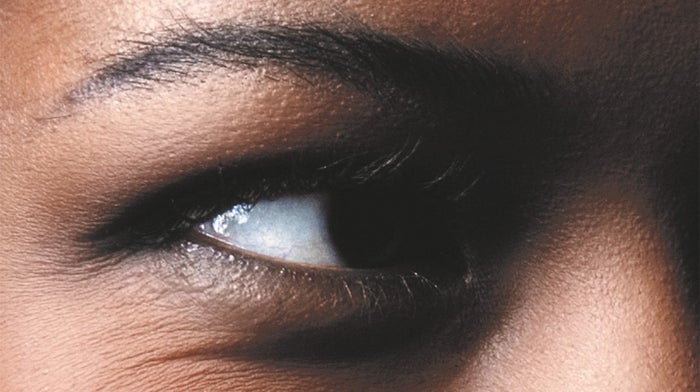 Be disciplined
Be disciplined

Skincare products are designed to be used on a regular basis (usually morning and evening), on clean, dry skin. Our gel face cleanser was specifically formulated to clear the skin of impurities and contaminants from the environment.
Also be sure to read the instructions provided with your FILORGA products. They contain valuable advice on how to get the most out of the treatment's anti-ageing properties.
One last thing: all of our tips are only helpful if they're regularly put to use! So, if you're new to cosmetics or just a bit forgetful, try putting reminders on your bathroom mirror!
Improve your lifestyle
As we've already seen, sleep, nutrition, and smoking all have a significant impact on skin ageing. Just a little difference in any of these three areas can have a positive impact on your skin.
Think about what you eat, your sleeping habits, etc., and see where improvements could be made. But you shouldn't try to change everything at once. Focus on a single (small) thing at a time. This way, you'll have the best chance of success.
Use effective sun protection
The first thing that doctors of aesthetic medicine will tell you is that it's essential to always apply UV protection, even in the city and even when it’s cloudy. Use a sunscreen that is suitable for your skin type as well as a moisturising and soothing after-sun treatment if needed.
Use antioxidants
Providing the skin with antioxidants helps it tackle the oxidative stress responsible for accelerated ageing in skin cells. Examples of key compounds in aesthetic medicine include glutathione, found in our signature compound NCEF [New Cellular Encapsulated Factors], which is used in all our products*, and vitamin C,which is the primary ingredient in our antioxidant face serum HYDRA-AOX.
Turning to aesthetic medicine
Since its creation in 1978, Laboratoires FILORGA has drawn inspiration from aesthetic medicine to produce high-performance treatments to combat skin ageing.
For those who want to turn to aesthetic medicine to prevent skin ageing, mesotherapy and botulinum toxin injections can be used alongside cosmetic products to combat the signs of ageing.
*except our sheet masks, micellar solution, and foam cleanser.
Explore all of our anti-ageing treatments
